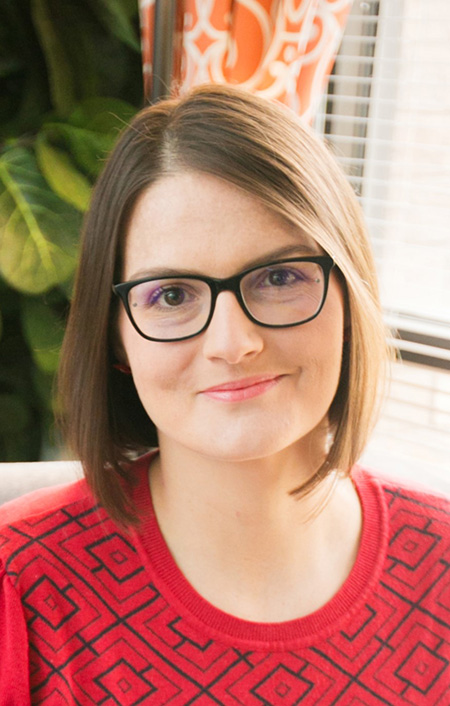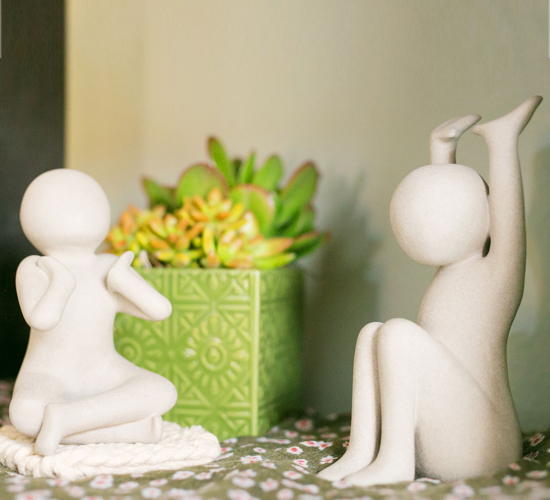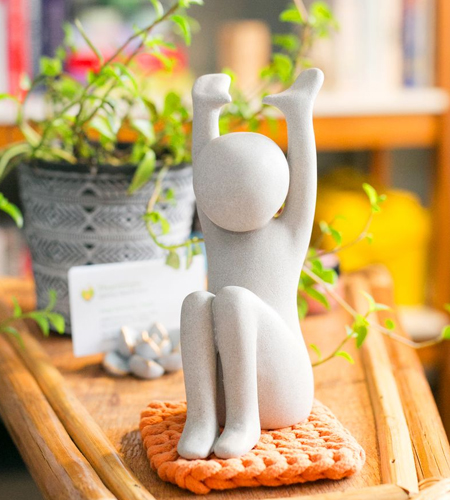About Me
 Feeling lost and alone is something I know well.
Feeling lost and alone is something I know well.
Hello, I am Dr. Amy N. Gorniak, a Licensed Psychologist and Licensed Professional Counselor-Supervisor.
I have lived the kinds of experiences that bring many of us into therapy – after aging out of foster care here in Texas, I went straight to college with a need to understand the whys and hows of experiencing hurt and living beyond it.
My path to becoming a therapist has been guided by the hope and compassion from those experiences, from giving myself permission to write my own story and connecting with my north star. Of course, it’s an unfinished story, and the sky sometimes goes dark, clouds block stars, or I have difficulty seeing.
Even when I can’t see and have lost the threads of my story, I carry a fierce hope. It is the hope that is an ethic as much as it is an inspiration, that is in doing what is in front of us because it’s right and necessary, and it matters to me who and how I choose to be in the world.
That is the hope I hold for each person I join with in therapy, assessment, and supervision.
 My credentials say a lot about my journey.
My credentials say a lot about my journey.
Beginning with my Bachelor’s in Sociology and Psychology and then my Masters in Clinical and Counseling Psychology, I have focused on understanding trauma, family dynamics, the systems we live in, and the complexity of being human in the world. In 2012, I was licensed as a psychological associate, and in 2016 as a professional counselor.
I promptly decided it was time to return and get that doctorate, a Psy.D. in combined Clinical and School Psychology, finished in 2021 after a doctoral internship at Vanderbilt University Medical Center. This was followed by my post-doctoral fellowship at Clarity Child Guidance Center, the premier youth and family mental health non-profit in San Antonio. I then additionally completed a post-graduate certificate in Climate Psychology, which focuses on understanding and treating the effects of climate change on mental health and building resilience and well-being for individuals and communities.
I have been privileged to work with individuals from six weeks old through the end of their lifespan and their families, teachers, and other care providers in a variety of settings. I expanded my expertise beyond complex childhood trauma and family work and to the trauma of climate change, grief, anxiety and perfectionism, and the impact of difficult transitions – pain and chronic illness, difficult breakups, and becoming an adult.
Most importantly, my understanding of therapy grew to include the body and nervous system, models of co-regulation with humans and the other-than-human world, post-traumatic growth, positive psychology, collective liberation, intergenerational healing, and personal and communal resilience building.
About Therapy


Flourishing (adj.):
vigorous and healthy growth; thriving; vibrantly alive
Therapy is composting the bullshit to feed our flourishing.
I believe everyone carries the seeds of who we are and the many different ways we can live well – that we all grow just by being in the world.
I see how our experiences become our stories about ourselves, each other, and the world. Our stories become the soil where we plant our seeds, shaping what we grow in ourselves and our lives.
I know our relationships with others, social systems, and the world are places where we often experience the most hurt. We carry that hurt into our relationship with ourselves and others.
And because of this, relationships and community have healing potential. With this perspective, I approach therapy as a relationship that connects us with the seeds of new possibilities and enriches our soil to feed our flourishing.
 What does that mean, though?
What does that mean, though?
Before you walk in the door, you’ll have filled out some forms about essential parts of your (or your teen’s) story.
Some of it may not seem important – why does anyone need to know about the high fever you had at age three or what school was like – but it all provides context for our work. Gaining context means that our first session can focus more on what brought you in. Perhaps you know exactly where you want to go, or maybe some part of you is crying out that there has to be another way.
As we meet, we’ll learn about your hurts and hopes. Together, we’ll identify what you want to achieve and how you want to live. We’ll try on skills and perspectives that can expand your capacity to move through challenges, and we’ll grow the supports that root you into the community and help you flourish.
We’ll know you’re ready for therapy to end when you know what a meaningful life is for you and have developed the self-awareness, skills, and relationships that help you live that while navigating life’s challenges.
If you want the jargon…
…my therapeutic approach holistically integrates evidence-based and trauma-responsive talk therapy (ACT) and EMDR with mindfulness, bodywork, ecotherapy, “parts work,” and other experiential modalities. My family work is rooted in the ARC model and includes positive parenting strategies and attachment theory.
I explicitly affirm everyone’s gender and sexuality and welcome the full range of human relationship expressions, from romantic friendship to monogamy to polyamory. I make space to explore the meaning of racial and ethnic identity, disability, chronic illness, immigration stories, intergenerational and cultural traumas, and the spiritual in your life.
And I am experienced with non-traditional and Earth-centered spirituality, including Animist, UU, Pagan, Witch, Druid, Polytheist, Agnostic, and Atheist individuals. The fact is that therapy is inherently political, and that informs how I approach diagnosis, suicidal thoughts, self-harm, and the role of activism in my own life and work.

